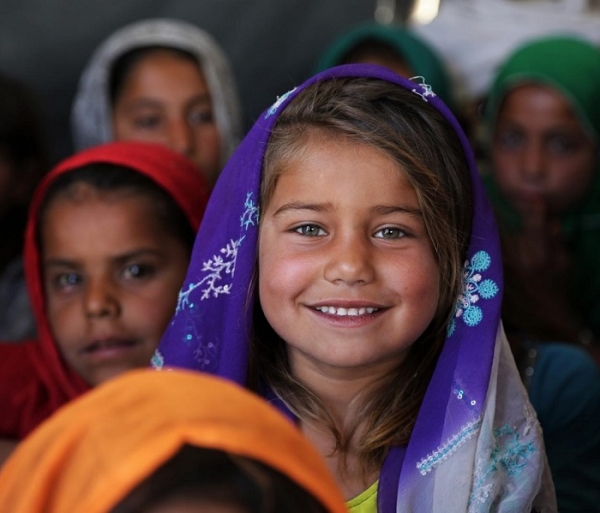In 2019, ICDP started to cooperate on spreading the ICDP programme to families in Herrat area.
ICDP training of a local team of facilitators.
Emily Allan is the Mental Health and Peacebuilding Director for the International Assistance Mission (IAM) in Afghanistan. She contacted ICDP chair Nicoletta Armstrong to explore the possibility of including ICDP parenting programme as part of their mental health programme. An agreement was reached soon after to start training a small team from Afghanistan in England, in July 2019.
The first workshop was well received and the ICDP methodology was tried out over a period of four months before meeting again with Nicoletta in December 2019. Emily, Fattah Najm and Judy Hwang fulfilled the first requirement of the training linked to exploring the 8 guidelines for good interaction within their own families and then they continued their practical training by implementing the programme with parents in Herat. At the end of 2019 they came to England to attend the final workshop and became certified ICDP facilitators.
The vision is to adapt ICDP to fit in with the cultural context and to later test it out in a number of communities before finalizing the adapted material and inserting ICDP as a permanent part of the work of IAM. The first ICDP trainees are based in and around Herat, the third-largest city of Afghanistan and serves as the capital of Herat Province, situated in the fertile valley of the Hari River in the western part of the country.
About IAM:
The International Assistance Mission is a non-profit Christian development non-governmental organization working in Afghanistan since 1966. IAM is registered in Geneva, Switzerland, and is the longest continuously serving NGO in Afghanistan, and only works in Afghanistan.
It began from the efforts of teachers and medical specialists who were interested in working in Afghanistan. IAM’s first projects were the National Organisation for Ophthalmic Rehabilitation (NOOR), the Medical Assistance Program (MAP), a school for the visually impaired (BINA), and a literacy programme.
From the IAM website: https://iam-afghanistan.org/:
The International Assistance Mission (IAM) exists to bring hope and transformation to the people of Afghanistan. Our focus is on building capacity in the sectors of health and development – seeing lives changed through eye care, community development, health projects, and education. IAM is working to tackle poverty and injustice in Afghanistan, giving some of the poorest communities the opportunity to thrive. We are helping to improve food security, fight infant and maternal mortality, and improve access to clean water and good sanitation; they are running literacy, peacebuilding and community leadership courses; and they are also helping families improve their finances and empowering communities to develop and thrive.
Eye care was IAM’s first project in Afghanistan. We started this work in 1966, and since then we’ve been working to make high-quality eye care accessible and affordable for all people in Afghanistan. We focus particularly on training mid-level eye care professionals, as well as ophthalmologists, providing skilled professionals to serve the people of Afghanistan – a country where the World Health Organisation estimates that 1.5 million people are visually impaired and 400,000 people are blind.
Through our Female Teacher Education Project, Silk Road English Centre, and Peacebuilding Project, we are working to help Afghans reach their full potential. We’re currently focusing on improving the accessibility and quality of education in villages (particularly for girls), equipping future leaders with English skills, and advocating for peace in Afghanistan.
We want to end the stigma surrounding mental health in Afghanistan and ensure those struggling with mental health issues have access to the help they need. IAM’s Mental Health Programme is based in the western region of Afghanistan and was started in 1996 in response to a high suicide rate among women. We are working in advocacy and media, helping to train medical professionals and communities about mental health, and connecting people with services.

